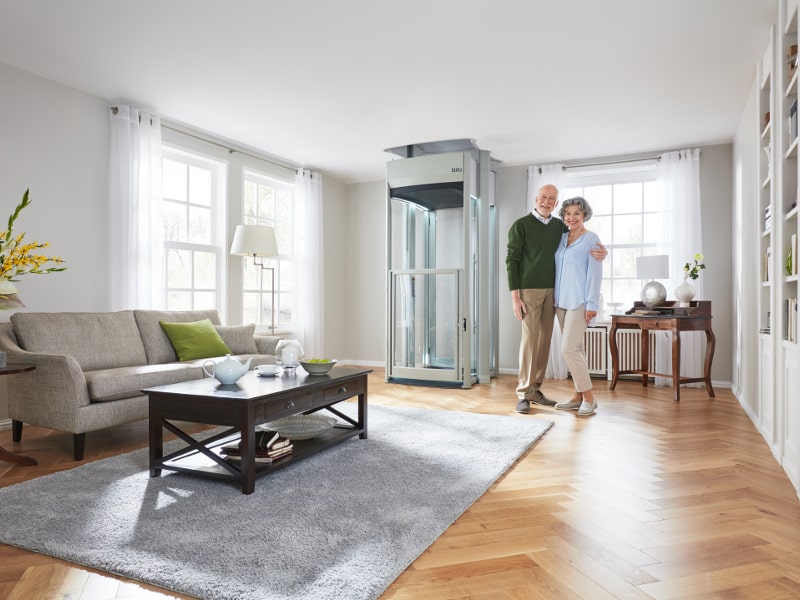
There is no doubt that domotics as a future solution is a success, don’t you think? It implies a great added value for homes and for people’s quality of life. In fact, one of its great advantages is the ability to make our lives easier, integrating into the home technological solutions of communication, computing and automation that improve our welfare, safety and comfort.
In addition, and thanks to the advances of recent years, we cannot deny that domotics as a future solution is one of the keys that will allow us to achieve savings and efficiency necessary to make energy consumption more sustainable, more efficient and more respectful of the environment.
Present and future of domotics
Broadly speaking, the main objective of domotics is to achieve intelligent, highly efficient buildings and dwellings in which practically everything can be personalised, in real time, according to the needs of the users.
It is easy to think that some of the leading technologies that will soon be available in a large number of homes (personalized voice assistants, augmented reality and virtual reality, virtual replicas of objects, processes that simulate the behavior of their real counterparts -digital twin-, Powerwall batteries, passive houses -passivhaus- etc.). ) will be the definitive solution to many of the problems related to energy waste, or security, in the home.

Even so, and if we stick to the present, we see that domotics has already helped us to improve energy management and security in the home, but also comfort or accessibility. And is that, when it seemed that appliances could not provide more improvements than they already lent, the emergence and integration of the Internet of Things turned upside down the old idea of an intelligent home opening the way to the current concept of “home automation.
The advantages of domotics as a future solution
- Energy saving. Although household appliances are becoming more efficient, sometimes the solution to saving is not to acquire new appliances that consume less energy but to manage them more efficiently. Home automation can help us in this aspect thanks to the programming of electrical appliances, the control of awnings and blinds or the management of tariffs.
- Well-being. Home automation helps us to improve comfort in our home thanks to the integration of different systems. An example is the possibility of configuring your thermal emitters or your electric water heater before arriving home, so that when you enter you have each room at the temperature you want and the water heater ready for the shower.
- Accessibility. The domotic house, by definition, offers remote control systems that can considerably favor the autonomy of disabled people or people with physical and / or functional limitations.
- Security. Probably one of the most interesting aspects of home automation is the increase in security thanks to intrusion alarms, presence simulation systems or telecare systems that can be managed or programmed from a mobile home automation app.
Home automation as a solution to the energy problem
Good energy management is essential to achieve sustainable energy expenditure. By energy management we mean the administration of the different energies used by a home based on three basic pillars: savings, energy efficiency and energy generation.
Important applications of home automation for three reasons:
- A domotic house is designed to control and reduce energy consumption thanks to automated, customizable and programmable systems (lights, air conditioning systems, air conditioning, boilers, thermoses, etc.). In most cases, this can be done thanks to a simple, intuitive and easy to use domotic app.
- Some of the technologies of the domotic house do not reduce the consumption of energy directly, but they manage to take advantage of it to the maximum. An example of this is the power factor correctors, which avoid overloads in the different systems of the home.
- Finally, home automation apps also allow you to control energy generation systems, such as accumulators or solar panels.
The domotic house: safer, more accessible and more comfortable
Today, we are continuously connected through our smartphones, computers and tablets. Many of these applications make life easier for us and expand our leisure offer, but they are also very useful when it comes to protecting our home.
One of the great advantages of domotics as a future solution for security is the possibility of instant tracking: you can control what is happening in your home and follow it minute by minute.
In addition, home automation systems provide alerts in the event of emergencies such as fires or floods, and allow you to create the “illusion” that you are at home thanks to interior and exterior light on/off systems that can “scare away” thieves.
Imagine that you don’t remember if you closed the door when you went to work in the morning: instead of having to go back, send someone or stay with the doubt, some intelligent houses incorporate systems that, by means of a domotic app, allow you to confirm if the door is open or not and, if necessary, close it with a simple touch of the screen.
Finally, home automation systems allow you to control indoor temperatures. In this way, thanks to the programming from your mobile phone, you can enjoy a comfortable return home according to your tastes and needs.





